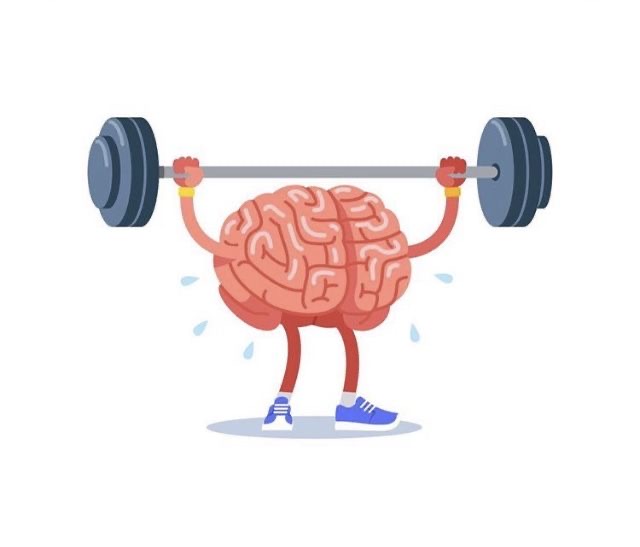The Mental and Emotional Boost of Exercise: How Getting Physical Enhances Cognition and Mood
At Elite Psychology Group, we believe that optimal mental health is about treating the whole person—mind and body. Exercise, often seen as just a way to stay physically fit, is also a powerful tool for enhancing mental and emotional well-being. It’s not just about building muscles or losing weight; it’s about boosting brain function and improving your mood. Let’s explore how exercise does more than just strengthen your body—it sharpens your mind and lifts your spirit.
Cognitive Benefits of Exercise
1. Boosting Memory and Learning
Exercise, specifically aerobic activities like running, swimming, or even brisk walking, is proven to enhance memory and learning. It promotes the production of brain-derived neurotrophic factor (BDNF), a protein that fosters the growth of new neurons and strengthens connections in the brain. This helps improve your ability to store and retrieve information, making it easier to learn new things and remember what matters most.
The hippocampus, the brain region responsible for memory, benefits the most. In fact, regular exercise has been shown to increase the size of the hippocampus, which helps protect against memory decline as we age.
2. Increasing Focus and Attention
Do you ever struggle to concentrate at work or during important tasks? Physical activity can help. Exercise boosts blood flow to the brain, particularly to areas responsible for focus and attention, like the prefrontal cortex. Even a 20-minute walk can sharpen your ability to concentrate and complete cognitive tasks with greater precision.
Studies have found that kids and adults who exercise regularly show improved attention spans, making physical activity a powerful tool for improving productivity and cognitive performance.
3. Enhancing Executive Function
Executive functions are high-level cognitive processes that help us make decisions, solve problems, and plan for the future. Regular exercise strengthens these abilities, allowing us to think more clearly and flexibly. This cognitive flexibility is crucial for tasks that require you to juggle multiple responsibilities or switch between different types of thinking.
Mood Benefits of Exercise
1. Reducing Anxiety and Stress
One of the immediate benefits of exercise is the reduction of stress and anxiety. Physical activity lowers levels of cortisol, the body’s primary stress hormone, and triggers the release of endorphins—often referred to as “feel-good” chemicals. These endorphins work like natural mood elevators, quickly diminishing feelings of tension and worry.
Even a short workout can have lasting effects, helping you feel more relaxed and in control.
2. Improving Mood and Fighting Depression
For those battling depression, exercise can be as effective as medication. Studies show that regular physical activity significantly reduces symptoms of depression by boosting levels of serotonin and dopamine, neurotransmitters that regulate mood. In some cases, exercise can be just as effective as antidepressants, offering a natural and empowering way to improve emotional well-being.
3. Boosting Self-Esteem
Physical activity can also improve your self-image. When you regularly exercise, you gain a sense of accomplishment from meeting fitness goals, seeing physical changes, and pushing your body beyond its limits. This boost in self-esteem often extends beyond the gym, influencing other areas of life like work and relationships.
4. Better Sleep, Better Mood
Sleep is essential for mental health, and regular exercise is one of the best ways to improve sleep quality. Whether it’s reducing insomnia or increasing the amount of deep sleep, physical activity helps regulate your body’s sleep-wake cycle, allowing for a more restful night. And when you sleep better, you naturally feel better—both mentally and emotionally.
5. Building Resilience to Stress
Exercise doesn’t just reduce stress in the moment; it also makes you more resilient to stress in the future. Long-term physical activity increases your body’s ability to manage stress, making you less reactive to stressful situations and more capable of maintaining emotional balance when challenges arise.
The Mind-Body Connection
At Elite Psychology Group, we encourage a holistic approach to mental well-being, recognizing that physical health is deeply intertwined with mental and emotional resilience. Incorporating regular exercise into your routine not only helps improve physical fitness, but it also enhances cognitive function, reduces anxiety, and boosts your mood.
Whether you’re looking to sharpen your focus, elevate your mood, or reduce stress, physical activity can be an essential part of your mental wellness toolkit. Take a step—literally—toward a healthier, more balanced life by making exercise a priority for your mind and body.












